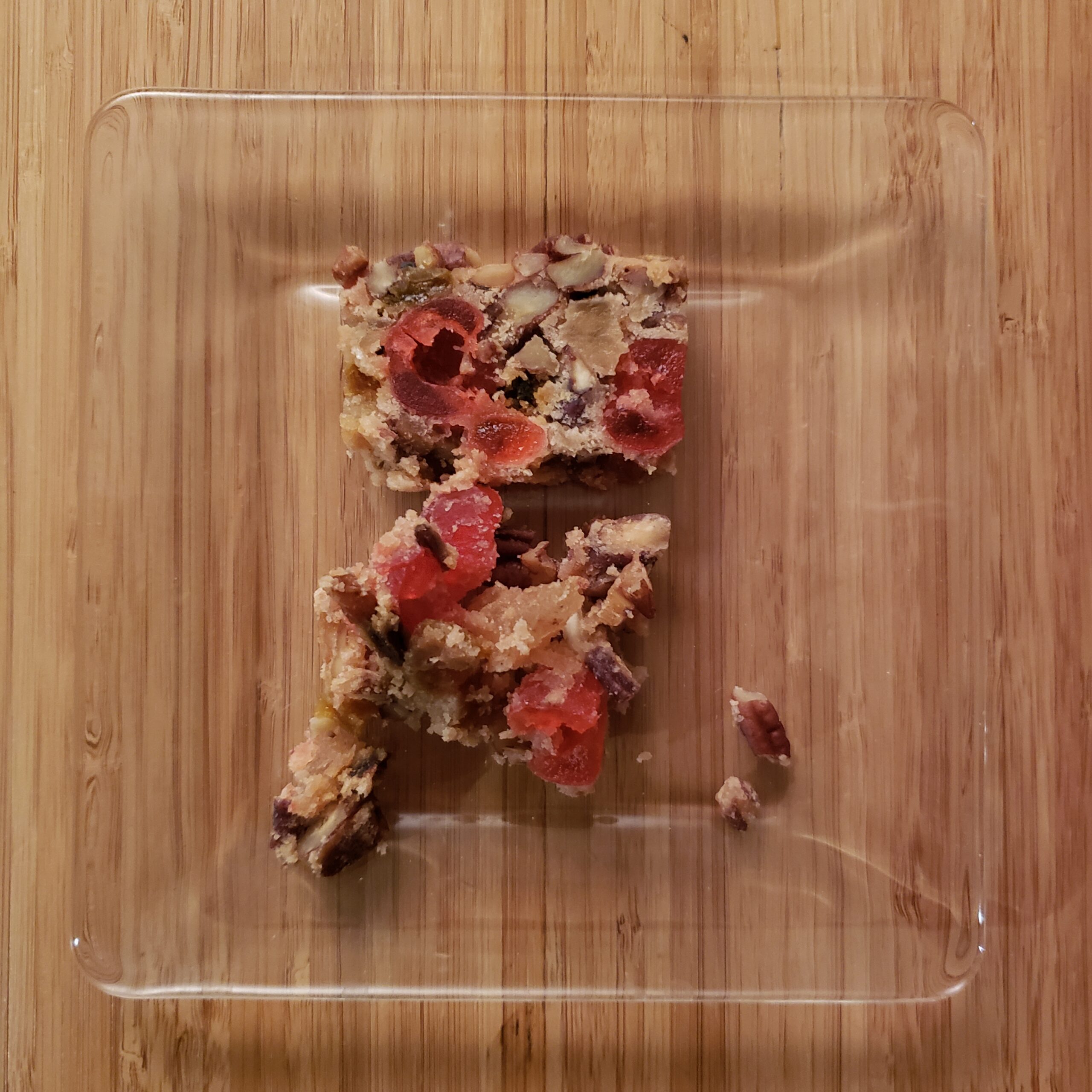Over the past year or so, as my therapist has become familiar with my FOO history, she has often said that what she hears is a family that was “always fighting for scraps”. “Scraps” in this case being love, affection, recognition, self-worth.
There wasn’t enough to go around — partly because dad was perpetually gone during the work week, partly because I don’t think my mother ever had what I call a “full tank” — meaning that you have to have a solid foundation of those things for yourself before you can truly give them to another person in a healthy way.
Another way to put it came from a set of cassettes that Mom once gave me about relationships: the presenter said that you have to become a “whole person” before you go looking for a mate, and they also need to be a whole person, or else you’ll just be two half-persons trying to make a whole person. Substitute “healthy” for “whole” and “unhealthy” for “half-person”.
I strongly suspect that my mother’s family was hugely dysfunctional; I know there was trauma. She was not close to any of her many siblings during my childhood; the one sister she was super-close to died in young adulthood (of some kind of “female” cancer, I believe).
There was once an incident when Dad had a new job and the family was moving back from the East Coast to the Midwest; along the way, near Chicago, the two oldest boys got very sick, to the point of requiring hospitalization, and there was no health insurance because of the job change. Dad had to borrow money to pay the hospital bills. My mother was from Chicago and all her family were there, AFAIK — and yet, they apparently did not contact her family in this crisis. Weird, to say the least.
(And even without that crisis — if you had been on the East Coast for the past several years, away from your family for the first time ever, and had three kids that none of them had ever met — wouldn’t you SCHEDULE a visit as you were passing through??
Well, you would if everything were normal.)
So. There was never enough healthy good stuff to go around.
And naturally, the children in this family saw each other as competition for that scarce resource.
Then there was the incredible stress: moving to another state, another new job for Dad, him being home all the time, a new house, my birth, my mother’s increasing dysfunction and eventual hospitalization, the stigma of mental illness, and finally the older kids being given the job of covering mom’s responsibilities.
And naturally, there was resentment among these kids — although it seems to have been directed at each other, and specifically me (as the new baby who was causing all the problems) — rather than appropriately at the adults.
And it probably was never “safe” to do so. There is a very strong tendency in this family’s children to protect & defend the mother, rather than the normal other way around. Getting angry at Mom for not being able to take care of her own responsibilities and choices, and having to do it for her, was probably unthinkable. As for Dad, the older kids apparently barely knew him, and had been taught to distrust him, if not to hate him — and now they were dependent on him.
It shouldn’t have happened that way. There were so many bad choices, so many other decisions that could have been taken, to prevent all this pain. The adults in the room did their best, but it wasn’t very good. Dad was out of his depth, Mom was out of her mind, and basically they tried to cope by turning three teens into one functioning adult. [In retrospect, they might have been able to pull it off if, say, it had been summer or they were otherwise allowed to do the job together — but they were still expected to go to (a new) high school part-time. Just a fucking impossible situation.]
As someone who knows a thing or two about childhood development, my therapist has tried, as best she can, to explain to me the effects it would have been likely to have had on all of us — including taking into account what was known at the time versus what is known now — and the hugely insurmountable distance it created, especially between my sister and me.
At one point she theorized that we are like Harry Potter and Lord Voldemort: “neither can live while the other survives”.
My sister’s reality and lived experiences require mine to be denied; my reality and lived experiences, especially during that first couple of years, are of a sister so deeply intertwined with our mother that they are practically the same person. And I am still, in some sense, that crying infant who doesn’t understand why her mother/sister keeps abandoning her. I only recently realized that when my sister went away to college, to me, at about a year old, that was yet another huge abandonment (three in one year, if anybody’s counting).
I keep thinking about how my therapist said, with a long sigh, closing her eyes, turning her face upward, with pain and sadness written all over her face:
“… you were ALL. STILL. CHILDREN.”


 “I want a slice with cherries in it!”
“I want a slice with cherries in it!”